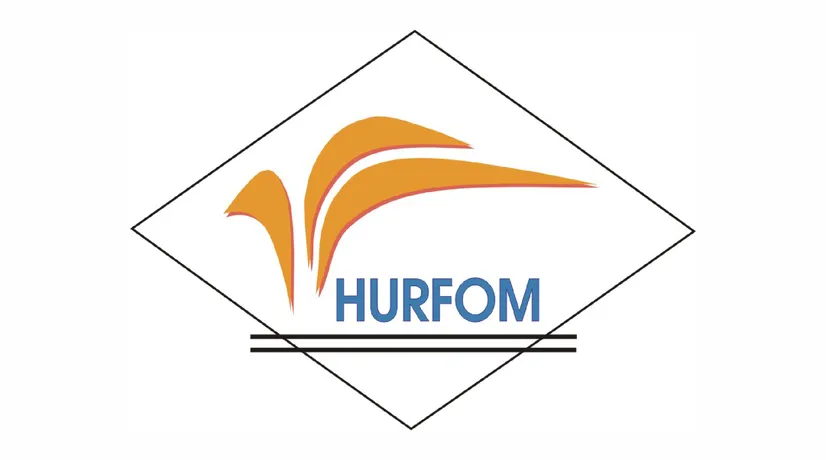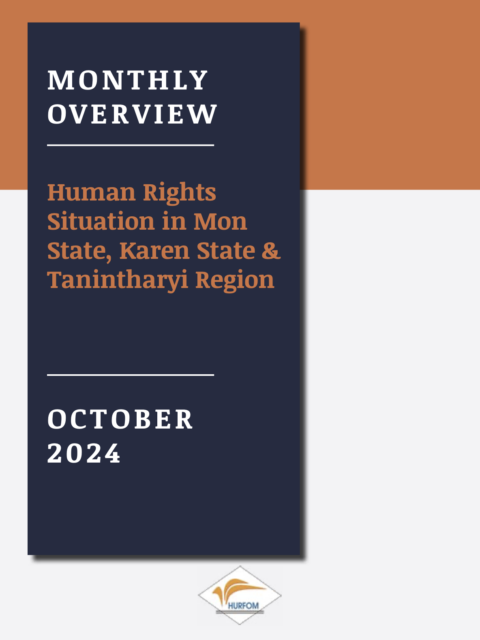Monthly Overview: Human Rights Situation in Mon State, Karen State & Tanintharyi Region (October 2024)
04 November 2024


Summary Overview & Analysis
Human rights violations across southeastern Burma continue to cause distress and alarm among local civilians. In targeted areas of the Human Rights Foundation of Monland (HURFOM), including Mon State, Karen State, and the Tanintharyi region, local people increasingly face restrictions on their ability to travel and work freely, with multiple forms of extortion imposed for permits. This extends to the epidemic of arbitrary arrests, which undermines civilian rights and freedoms.
In addition, the junta-enforced census, which began in mid-October, poses several risks to local security. For example, the census includes a controversial question about the language spoken at home instead of directly asking about ethnicity.
This has led to fears that ethnic minorities who respond by saying they speak Burmese at home will automatically be classified as “Burmese” in the census, undermining their ethnic identity.
In the last census, the Mon ethnic population accounted for over one million.
However, given the format of this new census, some worry that the Mon population could drop below one million because many, particularly those in urban areas or certain villages, predominantly
speak Burmese at home. Critics say this concern reflects the junta’s broader political strategy of diluting ethnicrepresentation and influence in the country.
Experts believe this census format could systematically downplay ethnic populations, using a model inspired by the methods employed in China and Russia to target ethnic minorities. This manipulation could threaten the aspirations of ethnic groups seeking autonomy in a future federal system, moving the country closer to a centralized system dominated by the Burman majority.
The junta’s 68-question census replaces the “ethnicity” question with one about the language spoken at home, raising further concerns about erasing ethnic identities. Ethnic communities, including Mon and Karen, are concerned that the census results could lead to future policies that undermine their autonomy and rights in a federal democratic system.
Another resident from Karen State voiced similar concerns, stating:
“Many ethnic families in urban areas use Burmese daily. This census format could hurt the representation of ethnic groups like ours.”
Announcements
21 May 2025
Open letter: Malaysia must lead ASEAN with principle, not hypocrisy, to address the Myanmar crisis

Progressive Voice is a participatory rights-based policy research and advocacy organization rooted in civil society, that maintains strong networks and relationships with grassroots organizations and community-based organizations throughout Myanmar. It acts as a bridge to the international community and international policymakers by amplifying voices from the ground, and advocating for a rights-based policy narrative.